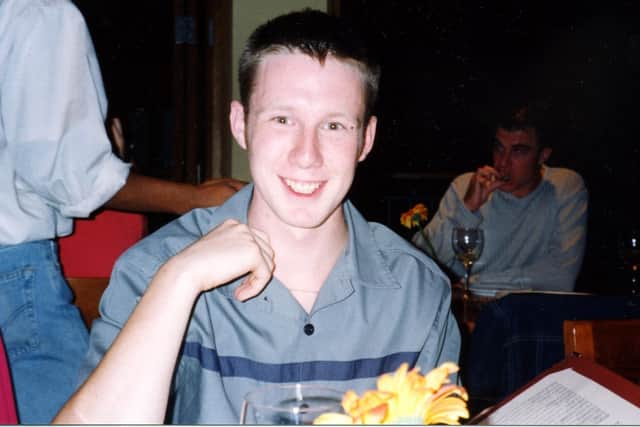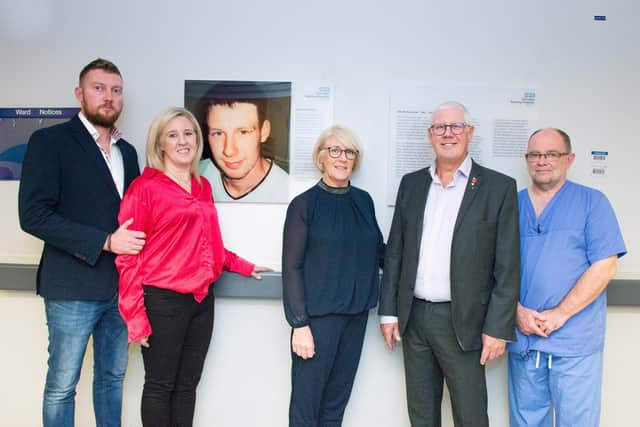Honour for trailblazer Billy Mottershead who became first person in Leeds to be organ donor after circulatory death
and live on Freeview channel 276
The day he lost his life is one his parents, Ian and Elaine, remember well. Elaine said: “Isn’t it weird how I remember that day like it was yesterday? I got a phone call from the police asking me where I was and to stay there because they were on their way. My first thought was, ‘what have I done?’.
"We were pacing the car park when they arrived telling us that Billy had been in an accident and had been taken to Leeds Hospital. They took the keys for our car and said they’d make sure it got home.
Advertisement
Hide AdAdvertisement
Hide Ad"We were then in the back of the police car, being driven to Leeds at top speed with the blue lights going. We knew that this was serious but the whole journey we had no idea what to expect or what had happened. They asked if we wanted to see him first but we said no, just do what you’ve got to do. So they did.”


Following attempts to save his life in theatre, Ian and Elaine were told there was not a chance of Billy surviving. Elaine said: “Everything stopped. But straight away we said ‘Organ Donation. Can you use his organs?’”
However, in 2002, only patients who were brain dead were generally considered as possible organ donors. Doctors were unable to diagnose brain death, therefore he was unable to become an organ donor. Some hospitals were beginning to consider organ donation in these circumstances but this had not been established in Leeds.
Dr Paul Murphy, consultant in neuroanaesthesia and critical care at Leeds Teaching Hospitals NHS Trust, said: “We were beginning to think about setting up this type of donation in Leeds - it is now called donation after circulatory death, or DCD for short, but we hadn’t got everything in place. But then along came Billy.”
Advertisement
Hide AdAdvertisement
Hide AdIan and Elaine were determined to see some good come from the death of their son and as it turned out, Billy became a catalyst for widespread change. Ian said: “We just kept saying that they had to find a way for him to become a donor. We just couldn’t accept that a young, fit lad like our Billy was just going to go. There had to be something they could do.


“We know that phone calls were put in to directors and other clinicians over the weekend and they all came in to the hospital. And they made it happen. Somehow, they changed the policy almost overnight so that Billy could become an organ donor. It felt like a relief.”
Billy’s story began circulating and more hospitals began approving DCD. Dr Murphy said: “We had plans to start DCD organ donation in Leeds, but sometimes in life to get things going, to overcome niggling doubts, you need someone to push you over the line. This is what Ian and Elaine did. They got DCD going.”
In 2022, every hospital in the country approves of DCD. On November 3, a special plaque was unveiled at Leeds General Infirmary to celebrate his life and the change he inspired. A family room in the intensive care unit has also been named after him.
Advertisement
Hide AdAdvertisement
Hide AdElaine and Ian said: “It was incredibly difficult at the time. We couldn’t see past that day. But afterwards, knowing the difference he made is what is important. We got a letter from a young mum who received one of Billy’s kidneys and so was able to walk her son to his first day of school – something many of us take for granted.
"We never could have thought that 20 years on people would still be talking about the impact our son had on the world but here we are. Billy couldn’t live, but he has helped so many others to do so. We’re very proud of that.”
